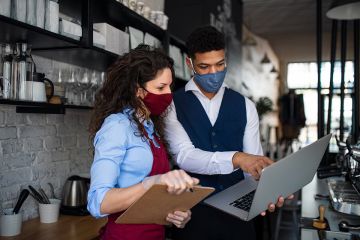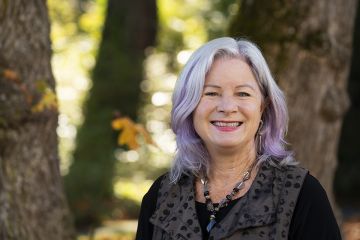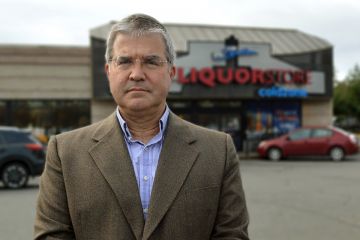Q&A: Complexities of PPE supply chains
- Anne MacLaurin

Expert Q&A with Claire Cutler on broken links in global medical supply chain
Countries around the world are competing for personal protective equipment (PPE) in a fractured market that lacks transparency and accountability, according to a University of Victoria researcher who is shining a light on the complexities and corruption of PPE procurement.
UVic political scientist Claire Cutler explains her research on supply-chain tracking and the lack of corporate accountability in the purchase of gloves, masks, gowns and ventilators. Her multi-year project, Corruption, Greed and Corporate Social Responsibility in Global Medical Supply Chains: Global and National Challenges, is funded in part by a partnership grant from the Social Sciences and Humanities Research Council.
Q: What have you learned so far about the global medical supply chain?
A. The purchasing of masks, gowns, gloves, ventilators and pharmaceuticals takes place in a highly fractured, complex and competitive market that lacks transparency. Fraud and even piracy are occurring in the form of predatory pricing, fraudulent and defective supplies, and with shipments sometimes disappearing. This “wild west” scenario makes countries such as Canada vulnerable to not securing adequate PPE to meet the demands of the pandemic.
The opacity and complexity of the PPE market makes supply-chain tracking nearly impossible. There are multiple legal jurisdictions involved when PPE is being moved, for instance, from China to Canada. And it is often difficult to determine exactly where a breach of contract occurred, in order to enforce contractual obligations. My particular expertise is in supply-chain contracting. I am interested in the extent to which supply-chain contracts advance human and workers’ rights and environmental sustainability, and are capable of advancing corporate social responsibility. It is not at all clear that this is possible in a market characterized by labyrinthine supply chains, subject to corruption, fraud and breach of contract.
Q: How should Canada secure a reliable supply of PPE?
A. My research shows that Canada needs to be self-sufficient regarding the production of PPE. The federal and provincial governments need to make this a priority.
Currently, we receive most of our PPE from China. In fact, China supplies PPE to most of the world. There are major issues as I already mentioned with the current procurement of PPE. So, it would make more sense if Canada developed its own supply.
The trend toward economic nationalism and protectionism is already happening in the world; the COVID-19 pandemic has simply emphasized the importance for countries to be self-sufficient.
Q: How would Canada go about being more self-sufficient?
A. Governments need to provide incentives so PPE can be produced locally. My research has shown a complete absence of any long-term strategic planning by successive federal governments in securing the supply of PPE and other medical supplies.
I hope that British Columbia, with the support of the federal government, will explore using operating pulp mills in BC (and elsewhere in Canada) and reopen mills that are currently closed to produce the pulp required for mask and gown production.
This could be an exciting opportunity for Canada and BC to develop a new industry that would allow us to be self-sufficient and possibly become a major global supplier of masks and gowns.
I understand that the Trudeau government is now attempting to improve procurement practices, which is a good thing, but long overdue. Canada needs to proactively encourage local PPE production and self-sufficiency.
Q: Besides self-sufficiency, what steps could countries take to ensure a secure medical supply chain?
A. If countries are importing their PPE, they need to ensure arrangements are in place to track the medical supplies from source to destination. It is also critical that supplies are inspected before they are shipped. These measures need to be in place to ensure a secure supply chain. However, the current situation with China (the world’s main supplier of PPE) makes these measures nearly impossible to enforce.
Photos
In this story
Keywords: COVID, health, politics, medical, research, political science
People: Claire Cutler





